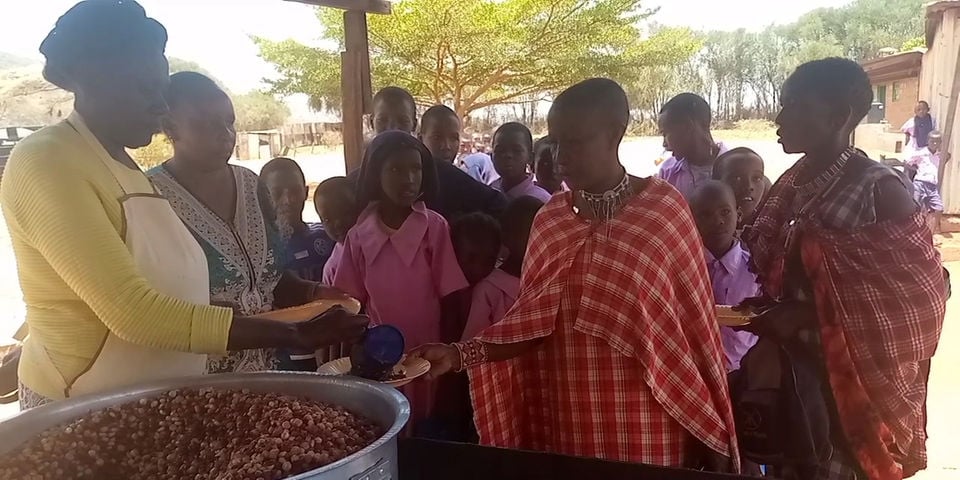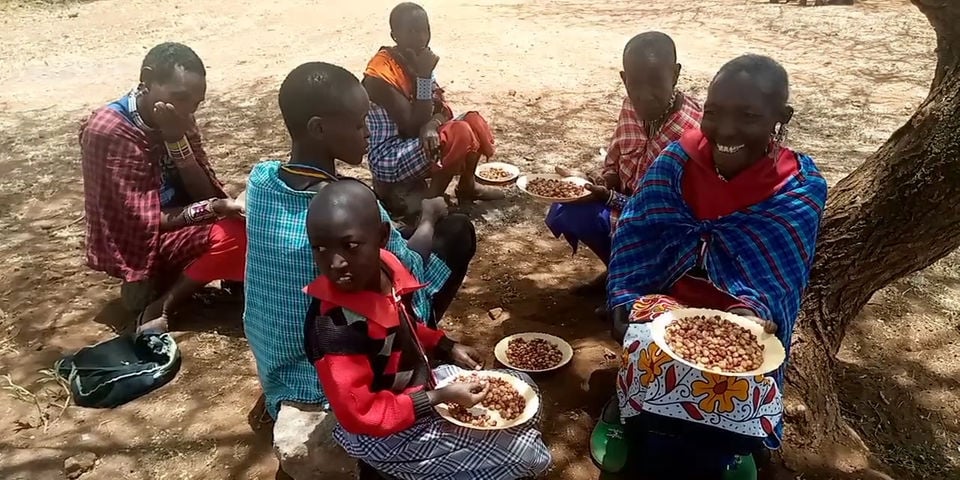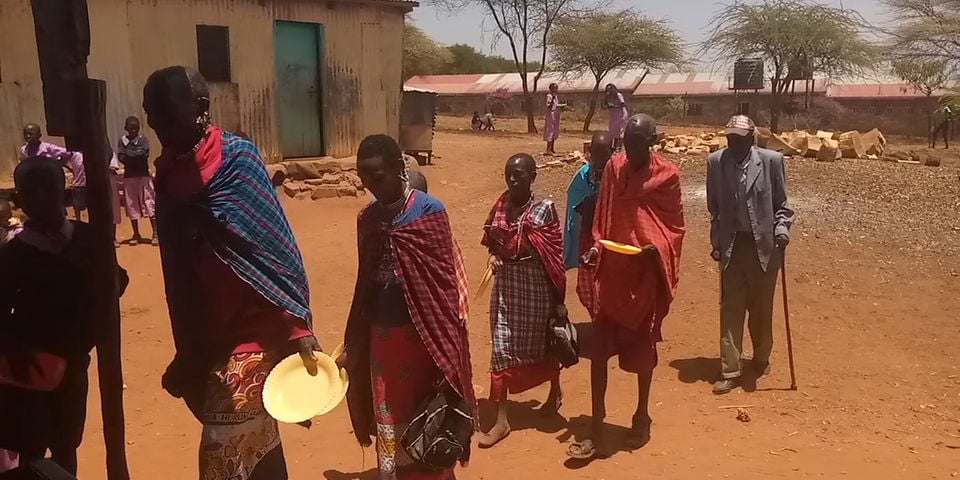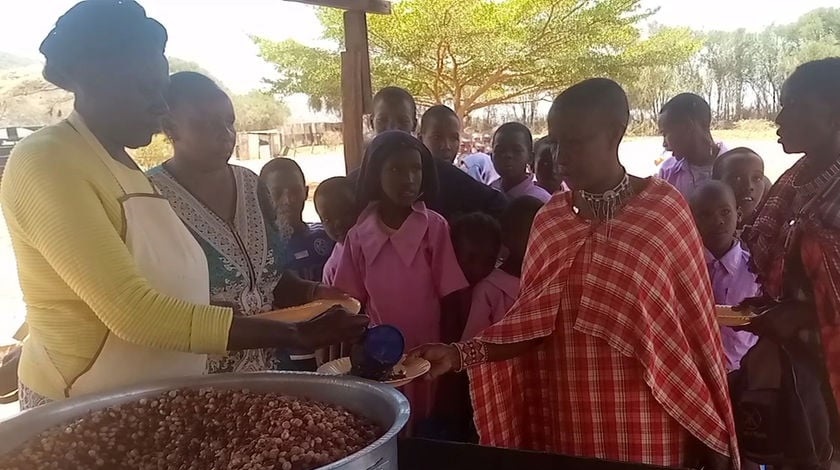Scores of hungry parents from Kajiado County's drought-stricken regions have taken to sneaking into neighbouring schools for free lunch.

After losing their cattle to the drought, most parents and the elderly are now food insecure and at risk.
Parents are increasingly breaking into surrounding schools during lunchtime to quell their children's hunger.
A man owns the animals in the Maasai society, but as this cherished source of income disappeared, more men became hungry. Men are more likely than women to enter schools illegally in search of food, especially the elderly.
Did you read this?

Several parents waited for lunch during a Nation spot check on Wednesday at Ilbisil Boarding Primary School in Kajiado Central.
They had been walking in the hot sun for a while, and it showed in their dusty and exhausted state.
They patiently waited in line with the students—some of whom were their grandchildren—for githeri, a dish made of beans and maize frequently offered for lunch in educational facilities.
According to head teacher Daniel Lantai, the school administration always permits parents to join the lines.
"We have parents that bet on getting lunch from the school daily". "We cannot turn them away since we know their struggle at home". "Some parents have been coming to the school directly to beg for food, " Mr Lantai added.
But, he noted that it's a precarious balancing act given that most parents cannot pay tuition, which means that the drought has severely impacted the educational establishment.

"The school administration decided to serve lunch to day students. We worry we won't have enough food to survive the entire semester". The majority of parents struggle to cover the school costs, he claimed.
Some parents scavenge for substandard maize and beans from the school's grain storage facility to survive.
"The scrap grain will guarantee my family a meal this evening. It is not about eating good meals. It's about providing food for our kids, one parent stated.
Most local guys need to be bold to request food for relief. Some force their women to work as the breadwinners by spending most of the day idling at local shopping malls.
The impacted parents claimed they must try their luck at the schools while sleeping on empty stomachs.
"For a father who went without food yesterday night, there is no shame. There is no cattle for sale. We are now beggars because of the drought "mom Ann Santila stated.
In some rural regions, younger kids who aren't yet old enough to start school accompany older kids to school for at least one healthy meal.
Schools with food programs run by the government or non-governmental organizations are adopting the practice.
According to Mr Elie Korinko, secretary of the Kenya National Union of Teachers (Knut) Kajiado branch, the drought could make education in the area impossible.
He encouraged the Ministry of Education to guarantee that schools, particularly those affected by drought, have feeding programs
"Most students come from low-income families severely affected by the drought. Let the ministry expedite the initiative for home-cooked school meals and provide boarding money to all institutions, "Mr Korinko added.
More than 400,000 families are at risk of famine, according to recent data from the National Drought Management Authority (NDMA), while more than a million livestock has died in Kajiado County.









